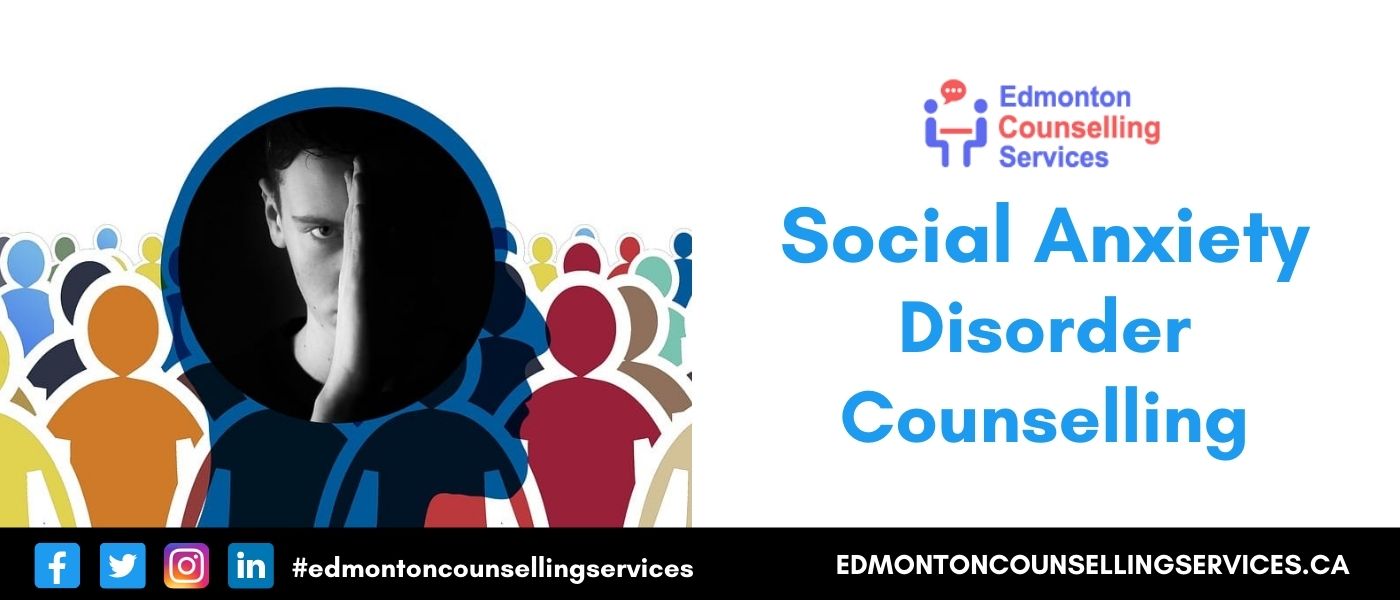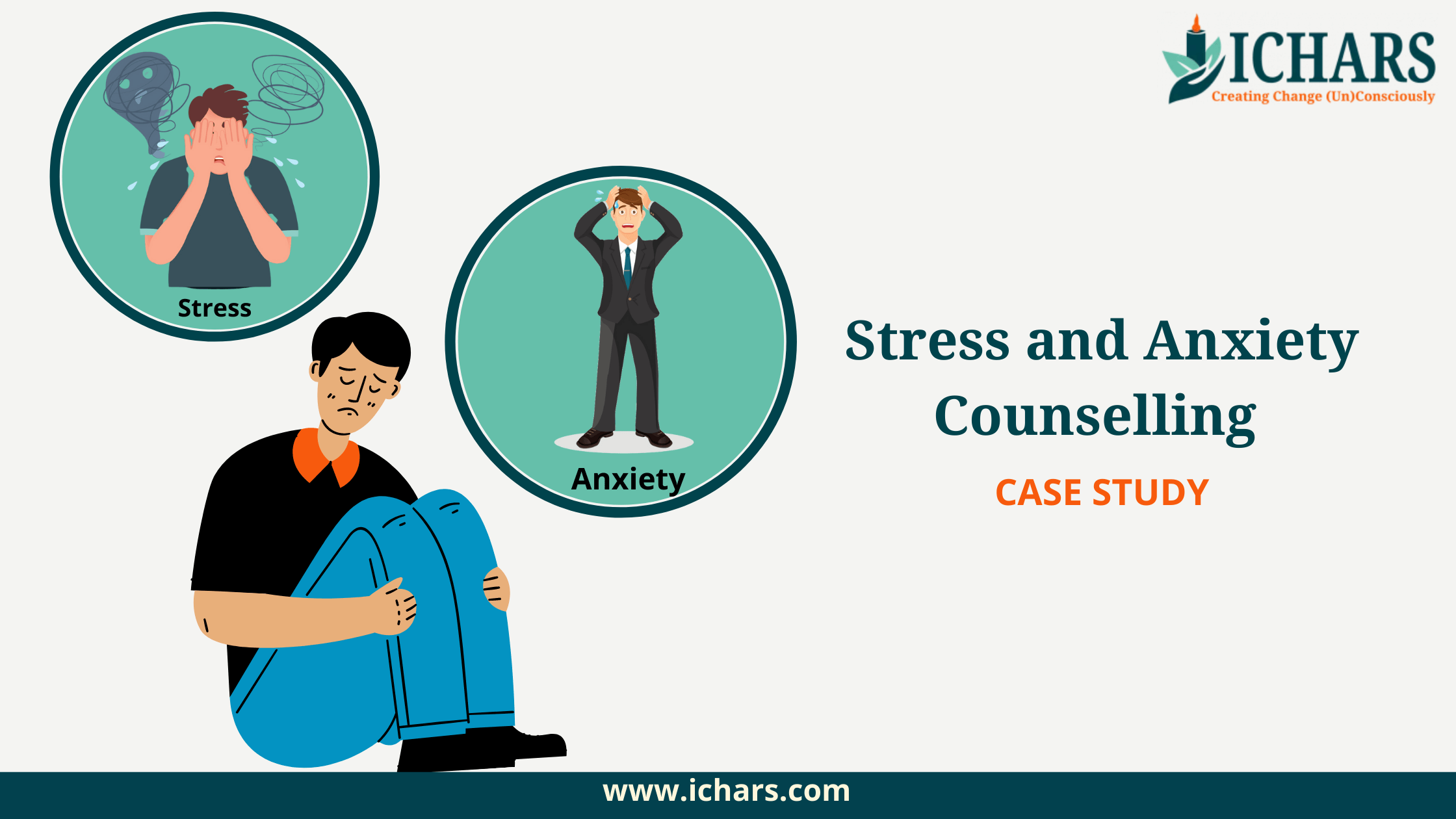Effective Methods in Counselling for Anxiety Problem: A Course to Healing
When facing anxiety disorders, you may feel overloaded and unclear of where to turn. Reliable coaching strategies can lead the way for healing, providing you with the tools to navigate your challenges. From cognitive-behavioral methods to mindfulness methods, each strategy provides distinct advantages. Understanding just how these techniques function together can make a significant distinction in your journey. So, what are the vital elements that will assist you towards lasting adjustment?
Recognizing Stress And Anxiety Conditions: An Extensive Introduction
When you consider stress and anxiety disorders, it's vital to recognize that they encompass a series of problems defined by excessive fear or concern. These problems can materialize in various methods, including generalized stress and anxiety condition, panic condition, and social anxiety problem. You might experience signs like fast heartbeat, sweating, or problem concentrating. It's typical to really feel overloaded, and these sensations can disrupt day-to-day life.Understanding the origin causes of anxiety is crucial. They can originate from genes, mind chemistry, or ecological variables. You might locate that particular situations trigger your anxiety, making it crucial to determine these triggers.
Cognitive Behavioral Treatment (CBT): Reshaping Thought Patterns

Mindfulness and Leisure Techniques: Growing Present-Moment Understanding
Mindfulness and leisure strategies aid you cultivate present-moment recognition, allowing you to manage anxiousness much more successfully. By focusing on the below and currently, you can break without the cycle of fear and rumination that commonly fuels anxiousness. Beginning by practicing deep breathing workouts. Inhale gradually through your nose, hold for a moment, then exhale via your mouth. This basic technique can soothe your mind and body.Engage in mindfulness meditation by establishing aside a few mins each day to observe your ideas without judgment. Focus on your breath, feelings, and the audios around you. You could likewise discover value in modern muscle relaxation, where you strained and kick back each muscle mass group, advertising physical and mental ease.Incorporating these techniques into your day-to-day regimen can create a higher feeling of control, lower anxiety symptoms, and enhance your general health. Keep in mind, consistency is key to experiencing the advantages.
Direct Exposure Treatment: Encountering Worries Slowly
Direct exposure treatment assists you encounter your anxieties slowly, allowing you to build confidence in time. By utilizing gradual exposure techniques, you can slowly face what makes you distressed while creating efficient coping systems. This procedure not just decreases your worry however likewise empowers you to take care of anxiety better.
Progressive Direct Exposure Techniques
You can effectively minimize anxiety and regain control over your life when you confront your worries gradually. Progressive direct exposure methods include facing your worries detailed, beginning with less frightening scenarios. You could begin by visualizing the feared scenario, then proceed to checking out videos or images associated to it. Ultimately, you can exercise confronting the anxiety in the real world, yet only when you feel ready. This method allows you to build confidence as you relocate via each stage. Keep in mind to pace yourself; rushing can raise stress and anxiety. Commemorate small victories along the road, as each advance equips you. By constantly applying these strategies, you'll discover that your fears start to shed their grip on your mind.
Structure Coping Devices
Structure efficient coping systems is essential for handling anxiousness, particularly as you encounter your worries progressively through exposure therapy. Begin by determining your certain worries and breaking them down into workable actions. This way, you can slowly confront each worry without ending up being overwhelmed. For circumstances, if you struggle with social situations, beginning by practicing tiny interactions, like greeting a neighbor.Alongside steady direct exposure, include leisure techniques such as deep breathing or mindfulness to relax your mind before dealing with triggers. Maintain a journal to track your progress and celebrate tiny triumphes. Border on your own with supportive buddies or a therapist who can direct you. Bear in mind, it's a journey-- patience and determination will strengthen your coping mechanisms, resulting in greater durability against stress and anxiety.
Encouraging Counseling: Building Trust Fund and Relationship
To properly support a person with anxiety, establishing trust and connection is important from the extremely first session. You'll wish to create a risk-free room where they really feel comfy revealing their ideas and feelings without judgment. Energetic listening is essential; show real interest in what they share. Acknowledge their sensations and validate their experiences. It is necessary to be understanding, as this aids construct a link and motivates openness.Be constant in your strategy and preserve discretion to further strengthen that trust fund. Use open body language and make eye get in touch with to share your listening. Keep in mind, your patience goes a lengthy way; structure relationship takes time, and it's important to respect their pace. By fostering this helpful setting, you'll encourage them to engage more completely in the restorative procedure, making it much easier for them to explore their anxiety and work towards recovery.
Group Treatment: Shared Experiences and Cumulative Healing
Group therapy can be a powerful tool for those taking care of anxiousness disorders, as it enables individuals to share their experiences and discover solace in the understanding of others. In this encouraging atmosphere, you can reveal your sensations without fear of judgment. Hearing others' stories can normalize your own experiences, making you feel less alone in your struggle.Participating in team therapy aids you develop coping techniques through shared understanding and insights. As you listen to others, you may find new means to tackle your stress and anxiety that you had not thought about before.Moreover, the collective healing that happens in these sessions can foster a feeling of community, advising you that you're not encountering your obstacles alone.Building links with others that recognize your battle can increase your self-confidence and inspiration to confront your anxiety. Team therapy produces a space where development and healing become a common journey, empowering you to take actions toward recovery.
Incorporating Lifestyle Changes: Holistic Methods to Anxiousness Monitoring
While therapy provides vital assistance, incorporating lifestyle adjustments can significantly enhance your capacity to take care of stress and anxiety. Begin by integrating regular exercise into your regimen. Exercise releases endorphins, which can boost your state of mind and decrease stress. Next off, pay interest to your diet plan. Consuming a well balanced diet regimen rich in fruits, veggies, and whole grains can positively affect your mental wellness. Don't ignore sleep-- go for 7-9 hours per evening, as top quality remainder is vital for emotional regulation.Mindfulness methods, such as reflection or yoga exercise, can likewise assist you remain based and existing. Consider alloting time every day to practice these methods. Lastly, limitation high levels of caffeine and alcohol usage, as they can exacerbate stress and anxiety signs and symptoms. By making these holistic changes, you create a stronger structure for managing stress and anxiety, complementing the advantages acquired from treatment. Bear in mind, every small action trust your path to recovery.
Often Asked Inquiries
What Are the Typical Physical Signs And Symptoms of Stress And Anxiety Disorders?
Typical physical signs of anxiety conditions include fast heart rate, lack of breath, muscular tissue stress, sweating, and headaches. You may additionally experience fatigue, lightheadedness, or stomach concerns, which can additionally complicate your life.
The Length Of Time Does Therapy for Stress And Anxiety Commonly Take?

Therapy for stress and anxiety commonly takes a couple of weeks to several months, depending upon your specific requirements and development. counselling for anxiety. You'll find that normal sessions aid you establish coping strategies and obtain understandings into your stress and anxiety
Can Stress And Anxiety Problems Be Completely Healed?

What Should I Carry out in an Anxiety attack?
Throughout a panic strike, emphasis on your breathing. Inhale deeply via your nose, hold for a minute, then exhale gradually - counselling for anxiety. Ground yourself by naming items around you, and advise on your own it will pass
Exist Medications for Anxiousness Conditions?
Yes, there are numerous drugs for anxiousness disorders, consisting of benzodiazepines and antidepressants. You ought to consult a healthcare professional to discover the ideal treatment strategy tailored to your specific needs and situations for the very best results. When you believe concerning anxiousness conditions, it's essential to identify that they encompass a range of conditions identified by extreme worry or worry. These disorders can show up in different methods, consisting of generalized stress and anxiety problem, panic problem, and social anxiety disorder. Structure reliable coping systems is important for managing anxiety, specifically as you face your concerns progressively through exposure treatment. Team treatment can be an effective device for those dealing with stress and anxiety problems, as it enables individuals to share their experiences and find relief in the understanding of others. As you listen to others, you may discover new ways to tackle your anxiety that you hadn't considered before.Moreover, the collective recovery that happens in these website sessions can cultivate a feeling of community, advising you that you're not encountering your difficulties alone.Building links with others that understand your battle can boost your self-confidence and motivation to confront your anxiety.